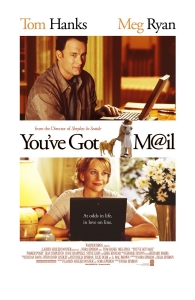 Graham Jones is back, examining our productivity and accuracy in our technology infused lives. Graham…
Graham Jones is back, examining our productivity and accuracy in our technology infused lives. Graham…
Website Distractions
Here’s a test. Look closely at what you are reading right now, these very words. Do not move your eyes away from these words. Focus. Focus. Focus.
Oh, go on then, take a look at the sidebar, take a peek at what else is on the page.
And….back to the text……
Now, let’s start again. Because that is what your brain is having to do. All of a sudden your reading flow has been interrupted and you need to get back into the swing of things. And here is another interruption to disturb your brain some more – a picture to look at. We all know about online distractions from our daily work – such as email alerts or the desire to see what our friends are saying on Facebook. And we all know that these distractions take us away from being productive.
People who only deal with email once or twice a day are significantly more productive than those people who constantly check their emails. Several studies confirm this. Similarly, people who only log on to Facebook once a day and who have a routine are both more productive and feel better about themselves.
However, new research shows that it is not just major distractions, such as checking your email or logging onto Facebook that are a problem. It turns out that distractions that take as little as 2.8 seconds can have a significant impact on us. The study found that an average of 4.4 seconds of distraction is enough to significantly reduce your accuracy on subsequent tasks.
What this means is that the plethora of web distractions, such as “web page furniture” is not only wasting our time and making us all less productive, it also suggests that what we do at work is becoming less accurate as a result. That also hits our productivity as we have to go over and repeat our work in order to correct the mistakes.
One way out of this conundrum is to use something like Evernote Clearly which allows you to view web pages, distraction-free. Perhaps we need to re-think the way websites are designed. Perhaps web pages that look rather like a page of a book, free of distractions, are actually better for us than pages full of potential distractions.
It also means we could increase productivity with better designs for offices, phones that do not ring for more than 2.8 seconds and so on. It is time to look at the whole way we work – we are not being anywhere near as productive as we could be, because our modern way of working provides us with a constant array of distractions for more than a few seconds.
Graham Jones